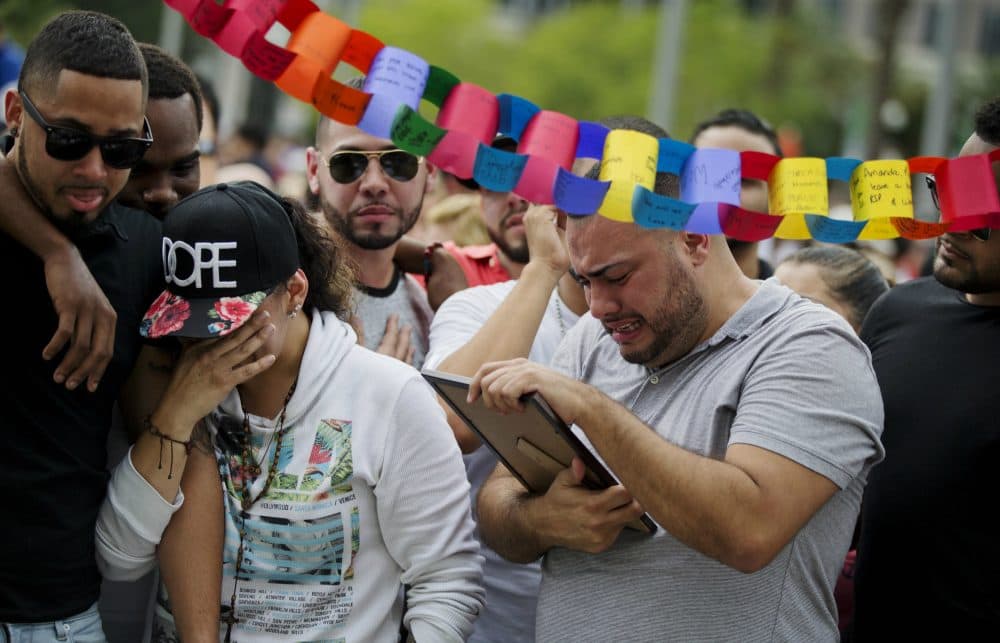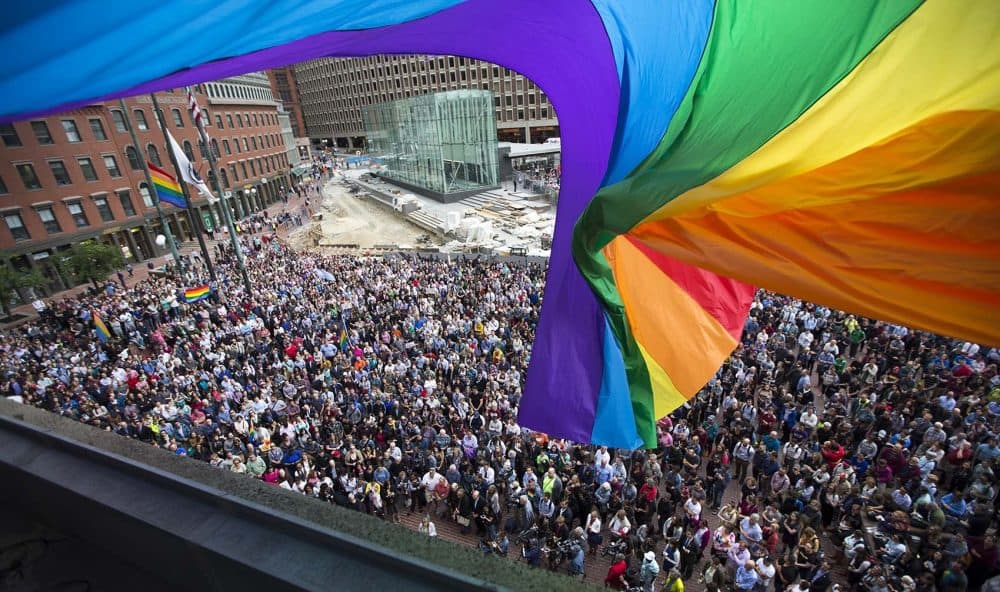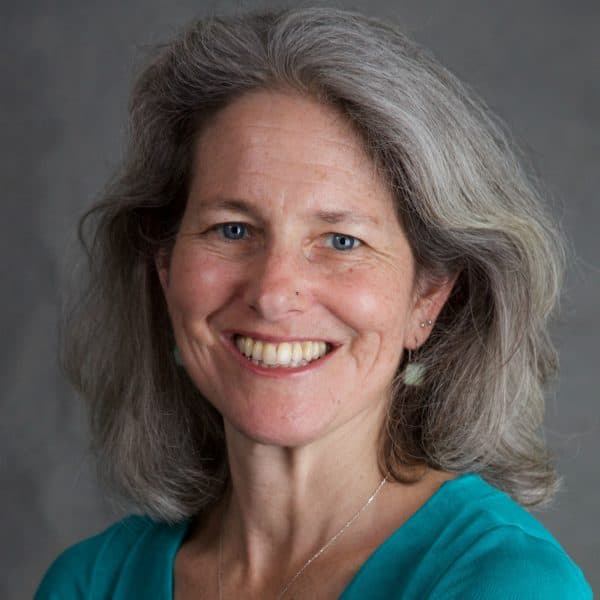Advertisement
The Last Season Of America? Horror, Hope And Orlando

When Supreme Court Justice Antonin Scalia died on Feb. 13, comedian Jake Flores tweeted, “i’m starting to think this is the last season of America and the writers are just going nuts.” 31,000 retweets, 40,000 likes and four short months later, his appealing vision has become a meme and the season has only gotten nuttier.
Imagine the writers’ room. A dozen baseball-capped humorists, satirists and poets sit around a table littered with coffee cups, soggy Danishes and laptops, trying to top the previous episode.
How about a white man shoots a reality TV singing star just as she reaches out to give him a hug at the meet-and-greet after her show? How about barely 24 hours later the Muslim son of Afghan immigrants shoots up a gay nightclub on Latin night, killing 49 people and wounding dozens more in the deadliest mass shooting in recent history? And how about we set the whole thing in Orlando, convention mecca and home of Disney World, to evoke the great powers of American business and fantasy?
It’s easy, of course, to see these responses as just one more piece of our horrendously mashed up contemporary American zeitgeist.
Nah, nobody would ever believe it.
How about we take all the hot issues in contemporary America and mash them up into one early summer weekend: sexuality, race, gender, immigration, Islam, police, guns, reality TV and a horrifying sense of powerlessness? How about we season it with media, social media and a presidential candidate who implies that his opponent’s top aide and the president himself are complicit in the attack? How about liberals immediately start calling for gun control and conservatives start calling for more guns, in the choral point-counterpoint we can’t seem to escape? How about the police start out by describing the mass shooting as “domestic terrorism,” then the killer’s father says his son got angry when he saw two men kissing, and we eventually learn that he called 911 and declared his allegiance to ISIS? So we can wrap international and domestic prejudice and policy into one big sloppy package?
That could not happen.
Advertisement
Except it did. And we all stared stunned at our screens, throughout a lovely June Sunday, when we should have been gardening, barbecuing, celebrating weddings and graduations, or attending Gay Pride events in cities across the country.

Except that’s not all we did. Because this story line, which makes it seem like the only other show the writers watch is "Game of Thrones," leaves out everything else that happened that Sunday. It leaves out the people who lined up to give blood in Orlando, the people who stood together in vigils across the country, the people who went to those Gay Pride events anyway, sad, defiant, or determined. It leaves out strangers and first responders who took care of victims and anyone else who came their way. It leaves out the Tonys, which took place in New York Sunday night, where the chorus members who performed and the stars who gave speeches stood up one after another to declare their allegiance to diversity, inclusion, and love.
It’s easy, of course, to see these responses as just one more piece of our horrendously mashed up contemporary American zeitgeist. Terrible things happen; citizens bewail, journalists editorialize, politicians propose and vote down legislation; nothing changes; we all, whatever we believe, fall back into our horrifying sense of powerlessness.
And yet, at times like these, we need to look back at history, ancient and recent, and remind ourselves that we have made change happen. Rome fell. The colonies of the British Empire gained their independence. The Allies defeated Hitler and liberated the concentration camps. Apartheid was overthrown. Northern Ireland is at peace. Interracial and gay couples can get married.
This is reality, not television, and if we have all, collectively, gone nuts, we can -- and must -- choose to write ourselves a new script.
That the early morning shooting at Pulse, the gay nightclub, occurred on Loving Day, the anniversary of the Supreme Court decision that legalized interracial marriage nationwide, seems to highlight, if coincidentally, the seemingly unending confluence of hope and horror that shapes the river of our national history. And yet, just as horror has too often followed hope, so hope has persisted through the horror.
At the vigil at Boston’s City Hall Plaza on Monday night, nearly 48 hours after the Pulse shootings, rainbow flags hung from the flagpole and balcony, and thousands of people packed the spaces between the chain link fences that surround the area’s construction. Young gay men hugged each other and wept, thinking, no doubt, that it could have been them. Middle-aged lesbian couples stared empty-faced into the crowd, thinking, perhaps, of all they’d worked for, all they’d been through, to arrive at this terrible moment. And yet, a toddler in a backpack cooed, raising smiles on the sad faces that walked by her, and a chant of “Take away the guns!” echoed through the cement caverns. In those thousands of people were the potential seeds of change, the determination that it doesn’t have to always be like it was this weekend.
The writers of this season of America need to weave this scene into their next episode. Then again, there are no writers of this season of America. This is reality, not television, and if we have all, collectively, gone nuts, we can — and must — choose to write ourselves a new script.
